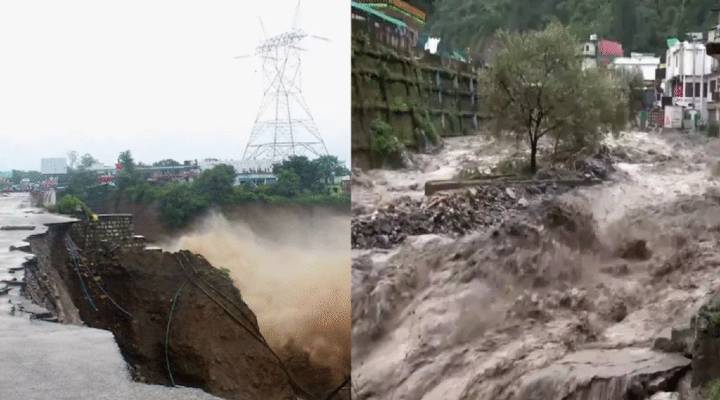Feeling It All: Navigating Climate Anxiety and Eco-Grief in a Changing World

If you’ve ever looked at a melting glacier photo, read the latest climate report, or walked outside on a strangely warm winter day and felt a tightness in your chest—you’re not alone.
Maybe it’s a lingering sense of unease. Maybe it’s grief you can’t quite name. Maybe it’s anger, helplessness, or a sudden flood of tears while scrolling through wildfire headlines. These aren’t overreactions. They’re human reactions to a very real crisis.
More and more people—especially younger generations—are living with something psychologists now recognize as climate anxiety and eco-grief. And though these terms might sound clinical, what they really reflect is our deep care for a planet we’re watching change before our eyes.
What Are We Feeling? Naming Climate Emotions
Let’s start by giving these feelings language.
- Climate anxiety is that constant worry about the planet’s future. It’s not irrational—it’s rooted in the reality we see unfolding around us. The American Psychological Association defines it as a “chronic fear of environmental doom,” but to many, it feels more like a constant hum of dread we carry through the day.
- Eco-grief is the heartbreak that comes from witnessing ecological loss. That might be the death of coral reefs you once swam through, the disappearance of seasons that used to mark time, or even the quiet mourning of a future you imagined for yourself or your children.
These feelings come and go. Sometimes they’re loud and overwhelming; other times, they’re a quiet ache in the background.
How Climate Emotions Show Up in Our Lives
You don’t have to be an activist or a climate scientist to feel this. Ordinary people—teachers, parents, students, artists, farmers—are carrying it daily. And it can show up in ways that surprise you:
- Trouble sleeping
- Trouble concentrating
- Feelings of sadness, guilt, rage, or numbness
- Catastrophic thinking (“What’s the point of planning for the future?”)
- Avoiding the news—or obsessively consuming it
- Questioning whether to have children
- Reorganizing your entire lifestyle around sustainability
A global survey in 2021 found that 75% of young people find the future frightening because of climate change. That’s not an abstract stat—it’s real emotional weight people are carrying, often silently.
So, What Can We Do With These Feelings?
Here’s the good news: these emotions don’t have to paralyze us. In fact, when held with care, they can become a powerful source of connection, action, and even healing.
1. Talk About It—With People Who Get It
You’re not the only one feeling this way. Whether it’s through climate cafés, support groups, therapy, or just honest conversations with friends, voicing your fears can transform isolation into solidarity. We’re not meant to carry this alone.
2. Stay Informed—But Not Overwhelmed
It’s a fine line. Yes, awareness matters. But doomscrolling won’t save the planet—and it won’t help your mental health either.
- Choose media that includes solutions, not just disaster.
- Notice when you’re spiraling and give yourself permission to step back.
- Follow activists and scientists who focus on hope and action.
3. Take Small, Tangible Steps
You don’t have to single handedly save the world. But action—any action—can help ease the powerlessness.
- Start composting.
- Plant something.
- Join a local clean-up.
- Vote for leaders who prioritize sustainability.
- Talk to your workplace or school about going greener.
Even choosing to slow down and spend more time in nature counts. The point isn’t perfection. It’s participation.
4. Shift Your Inner Narrative
When the world feels uncertain, we need flexibility—not rigidity.
- Practice “both/and” thinking. Yes, climate change is serious and people are working tirelessly toward solutions.
- Hope isn’t naive—it’s a muscle. Flex it.
- Focus on what’s within your reach. Your sphere of influence matters more than you think.
When You Need Extra Support
Sometimes, climate emotions run deep—so deep that they start to affect your daily functioning. If you feel stuck, overwhelmed, or hopeless for extended periods, it’s okay to reach out for professional help.
There are therapists and counselors trained in eco-anxiety, nature-based healing, and climate-aware therapy. You deserve support that meets you where you are.
From Grief to Grounding: Moving Forward Together
Here’s the truth: feeling climate anxiety or eco-grief doesn’t mean something is wrong with you.
It means you’re paying attention. It means you care.
These emotions don’t need to be “fixed”—they need to be honored, held, and moved through. They can become fuel for action, connection, and even purpose.
As climate psychologist Dr. Renée Lertzman puts it beautifully:
“The very feelings we often most want to avoid—grief, anxiety, fear—can become a source of power and connection when we create safe spaces to acknowledge them together.”
Let’s create those spaces—for each other and ourselves. Let’s talk about it, feel it, act on it. And let’s remember: even in the face of immense change, we still have the capacity to build something beautiful, together.
________________________________________
💬 Your Turn: Have you felt climate anxiety or eco-grief in your own life? What helps you stay grounded or hopeful? Share your thoughts below—I’d love to hold space for your story.






